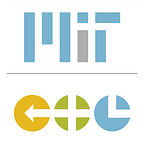Gov’t Shutdown May Drive Consumers to More Transparent, Trustworthy Food Brands
One of the casualties of the longest federal government shutdown in US history is consumer trust, and especially trust in government to safeguard the nation’s food supplies.
In such a climate, a company’s reputation as a custodian of food safety becomes even more important. As does the need for a key component of a food company’s market standing — a supply chain that is efficient, safe, and transparent.
Negative publicity
The wave of media coverage generated by the partial government shutdown has put federal food inspections in the spotlight. Not surprisingly, furloughing the employees who inspect food facilities is causing much concern.
Moreover, the media reports surrounding government food safety programs often emphasize the inadequacy of the country’s defenses against foodborne illnesses. A recurrent theme is that the FDA’s ability to police food facilities is severely hampered by a lack of resources.
In response, the Food and Drug Administration (FDA) recently announced that it is recalling staff and resuming inspections. However, the inspectors will work without pay, and reports indicate that only about 700 of the FDA’s force of some 5,000 inspectors will return to work. They will immediately focus on high-risk items such as dairy products, but it seems that only a fraction of the 160 monthly inspections normally carried out will recommence until the shutdown is resolved. Even then, the FDA’s food inspection teams will presumably face a sizeable backlog of work when they resume their duties.
Buyer reactions
Consumers are understandably unnerved by the crisis. If the government isn’t a trusted champion of food safety — who is?
The obvious answer is the companies that consumers perceive to be a trusted source of food products. This is one reason why corporate reputation in the industry is increasingly important.
Research carried out by the MIT Sustainable Supply Chains (MIT SSC) initiative, affirms the connection between a company’s reputation as a good corporate citizen and consumers’ willingness to buy its products. For example, ongoing research in ethical product labeling shows that communicating information about a company’s ethical practices influences consumer purchasing practices. MIT SSC’s research in the palm oil and apparel sectors has shown that leading companies with the highest brand values are beginning to disclose more about their supply chain practices in an effort to strengthen consumer trust.
Recent research led by professors at the Sloan School of Management finds that customers value information related to a company’s supply chain, and many are prepared to pay a premium for greater supply chain visibility. Professors Karen Zheng and Tim Craft conducted a series of experiments which mimicked the dynamics of a supply chain in a game where the players represent the roles of a consumer, a seller and a worker.
Impending regulation
The fallout from the partial government shutdown also could negatively affect regulatory activities.
As we explain in the blog post Fed Food-Dragging on Food Regs Highlights Company Role, the FDA “has relaxed enforcement across the board, and maintained a gradual approach to the adoption of regulations such as the Food Safety Modernization Act.” This relaxed approach has real-world consequences, given the growing complexity of food supply chains and increasing demand from consumers for information on the products they buy and consume.
The shutdown and its aftermath could further distract the FDA from regulatory matters. In the longer term, will the agency also lose expertise and manpower as a result of this unprecedented disruption? A number of reports indicate that many federal employees are looking to leave their government jobs.
Moreover, the shutdown is a symptom of government gridlock, which could become even more intractable in the aftermath of the impasse and make it more difficult to achieve progress on the regulatory front. These problems could render the country’s food systems vulnerable to safety issues for some time.
Investing in safety
In this environment, consumers are more likely to turn to the brands they trust. Which puts more onus on companies to invest in ways to reinforce the integrity of their supply chains.
As we suggest in the above post: “To win consumer trust, businesses need to embed process and technologies that achieve safe handling practices and better information management and reduce or eliminate outbreaks of foodborne illnesses. Companies need to voluntarily promote higher safety standards in the food supply chain, and improve visibility to pave the way for more effective handling verification and trace-back protocols.”
It’s impossible to know for sure how the government shutdown will impact future consumer buying decisions. However, it has already accelerated the erosion of trust in food supply chains, and created opportunities for companies to step in with trust-building supply chains.
This post was written by Dr. Alexis Bateman and Ken Cottrill. Alexis Bateman is a research scientist at the MIT Center for Transportation & Logistics (MIT CTL). She directs the MIT SSL initiative that engages with public and private partners on research to address social and environmental challenges in supply chains. For more information on her research contact Alexis Bateman at hickmana@mit.edu. Ken Cottrill is Global Communications Consultant at MIT CTL. He can be contacted at kencott@mit.edu.
